Top 5 Health Benefits of Moringa
Moringa is known as the drumstick tree, the miracle tree, the ben oil tree, and the horseradish tree. Moringa is said to provide health and cosmetic ... read more...advantages, as well as the ability to help prevent and treat ailments. Here are the most amazing health benefits of moringa that have been shown by scientific research.
-
North India is the natural home of the sizable tree moringa oleifera. It goes by several names, including the ben oil tree, horseradish tree, and drumstick tree. Nearly every component of the tree is consumed or used to make traditional herbal treatments. This is particularly true of the leaves and pods, which are often consumed in several regions of India and Africa.
The dried leaves are offered as nutritional supplements in powder or pill form in Western nations. The pods often contain fewer vitamins and minerals than the leaves. They are particularly high in vitamin C, though. 100 grams of freshly cut, fresh pods provide 157 percent of your daily needs. People in underdeveloped countries occasionally don't get enough protein, vitamins, and minerals in their diets. Moringa oleifera can be a significant source of several crucial nutrients in these nations. There is one drawback, though: High amounts of antinutrients in moringa leaves may interfere with the body's ability to absorb protein and minerals.
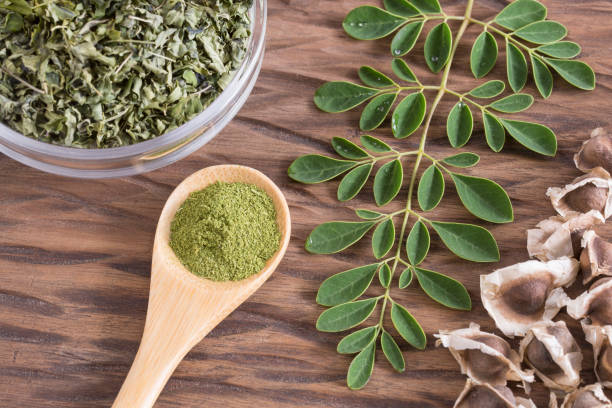
Very Nutritious 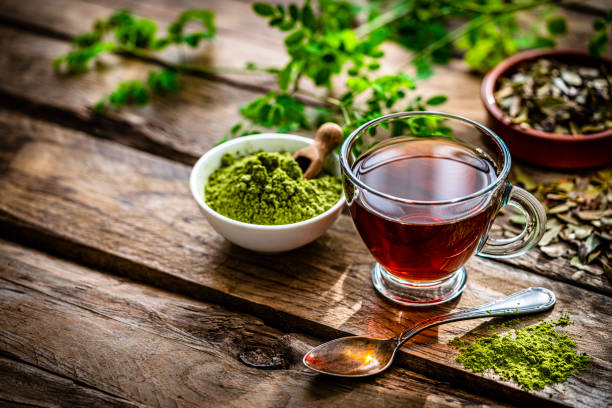
Very Nutritious -
Compounds known as antioxidants work to combat free radicals in your body. Oxidative stress, which is linked to chronic illnesses including heart disease and type 2 diabetes, may be brought on by high quantities of free radicals. The leaves of Moringa oleifera have been shown to contain a number of antioxidant plant components. In research including women, blood antioxidant levels were shown to be considerably raised after three months of consuming 1.5 teaspoons (7 grams) of moringa leaf powder daily. Additionally, moringa leaf extract can be used to preserve food. It decreases oxidation, extending the meat's shelf life.
In addition to vitamin C and beta-carotene, these include:
- Quercetin: This powerful antioxidant may help lower blood pressure.
- Chlorogenic acid: Also found in high amounts in coffee, chlorogenic acid may help moderate blood sugar levels after meals
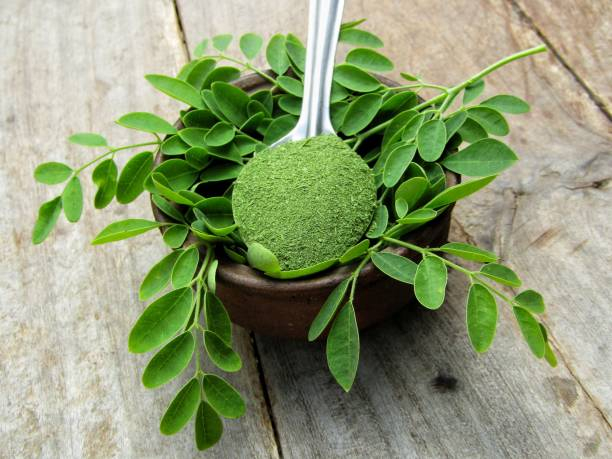
Rich in Antioxidants 
Rich in Antioxidants -
Serious health issues might result from high blood sugar. In actuality, it is diabetes' primary feature. Over time, having high blood sugar levels makes a person more susceptible to heart disease and other major health issues. It's crucial to maintain good blood sugar levels because of this. It's interesting to note that much research has suggested that moringa oleifera may help reduce blood sugar levels. The majority of the data, however, is supported by animal research. There aren't much human-based research and those that do tend to be of poor quality.
In research involving 30 women, taking 1.5 teaspoons (7 grams) of moringa leaf powder daily for three months resulted in an average reduction of 13.5 percent in fasting blood sugar levels. Adding 50 grams of moringa leaves to a meal lowered the rise in blood sugar by 21%, according to a smaller trial including six diabetics. According to scientists, these effects are brought on by plant substances like isothiocyanates.

May Lower Blood Sugar Levels 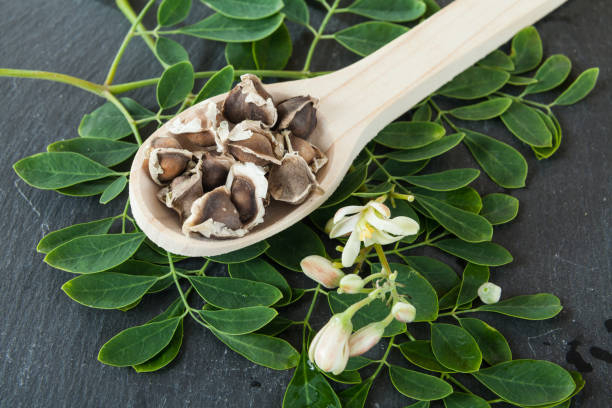
May Lower Blood Sugar Levels -
The body's natural response to an injury or infection is inflammation. Although it is a necessary defense mechanism, if it persists for an extended length of time, it might pose a serious health risk. In fact, persistent inflammation has been related to a variety of chronic health issues, including cancer and heart disease.
Anti-inflammatory qualities are present in the majority of entire fruits, vegetables, herbs, and spices. The kinds and concentrations of anti-inflammatory substances they contain, though, determine how much of a contribution they can make. Isothiocyanates are thought to be the primary anti-inflammatory components in moringa leaves, pods, and seeds. However, research to yet has only included animal and test-tube trials. If moringa oleifera has comparable anti-inflammatory benefits in people, that has to be seen.
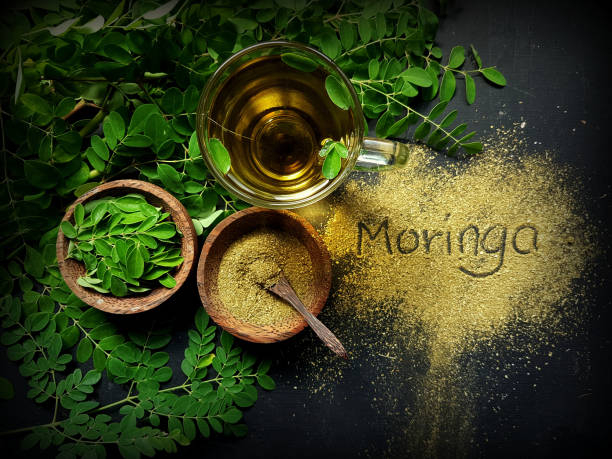
May Reduce Inflammation 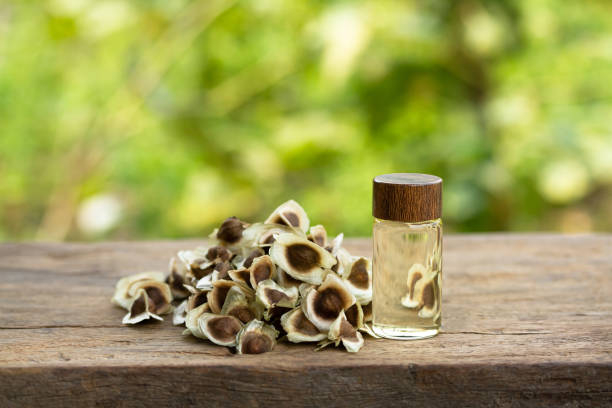
May Reduce Inflammation -
In many regions of the world, food and water pollution with arsenic is an issue. It's possible that some varieties of rice have exceptionally high amounts. Over time, prolonged exposure to high arsenic levels may cause health issues. For instance, research has connected prolonged exposure to a higher risk of heart disease and cancer. Interesting research on mice and rats has revealed that moringa oleifera leaves and seeds may guard against some of the side effects of arsenic poisoning.
Heart disease risk has been associated with high cholesterol levels. Fortunately, a variety of plant-based diets can successfully lower cholesterol. These consist of almonds, oats, and flaxseeds. Studies on both animals and people have revealed that moringa oleifera may have comparable cholesterol-lowering benefits.
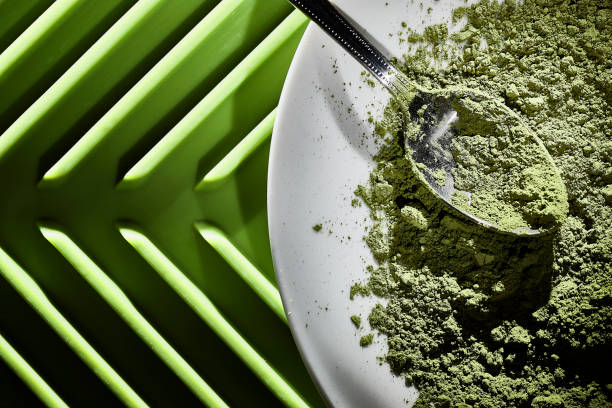
May Protect Against Arsenic Toxicity 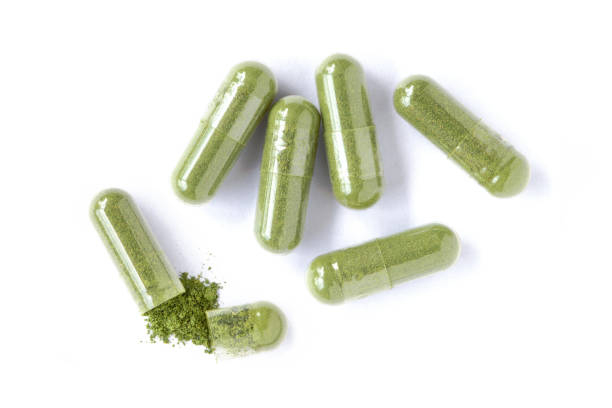
May Protect Against Arsenic Toxicity


























